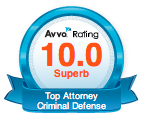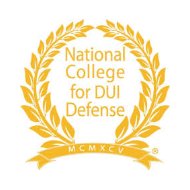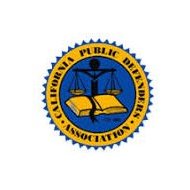Home
Lawyer Profile
I.V. Legal FAQ
I.V. Legal Links
Common Charges
Youthful Offenders
Zero Tolerance Law
Calculate Your BAC
Clear Your Record
Drug Possession
Contact Us
Testimonials
Privacy Policy
Terms of Use
Frequently Asked Questions
1) Will I have to do jail time?
It depends on the nature of the charge, your criminal history (if any), and many other factors. You should consult a lawyer who is aware of all of the facts and circumstances, as well as the law on point, and the customs of the local prosecutor and court before you assume that any case will not result in jail time.
2) I got a drunk in public but they didn't breathalyze me or take a blood test, does that matter?
Sure it matters. As any member of law enforcement will tell you, they are trained and equipped to administer forensic tests of breath and blood at a very minimal cost (in terms of time and money), yet they don't do it. In Santa Barbara County, as a matter of custom, the police don't test people who are arrested on a stand-alone charge of public intoxication. This is because they don't want their own discretion as to what constitutes public intoxication challenged in court by a forensic toxicologist (i.e., a person who could explain that a person at a blood alcohol level of, for example .10%, though unsafe to drive, may likely possess sufficient judgment and coordination to get themselves home safely ). The fact that they didn't test, in many cases, works to your advantage. Supposing that you were able to walk and were coherent, as many people who are arrested for public intoxication are, then the evidence may favor your acquittal of the charge. Absent forensic evidence, a jury may not be willing to convict you of the charge.
3) I got a citation but I never got taken to jail, does that mean they are going to drop the charges?
Not usually. Occasionally, the reviewing Sergeant or District Attorney will prevent a case which lacks merit from proceeding to court. However, most police officers, particularly after a few months on the job, can articulate that a criminal act took place. So, even if it is a fabrication, it will generally pass review, as long as each of the legal elements of at least one criminal act are alleged.
4) I don't have any money to hire a lawyer, do you accept payments?
There are payment alternatives which work for most people. Just ask.
5) How does lawyer-client confidentiality work?
With few exceptions, everything you say to your lawyer (or prospective lawyer (as in a lawyer you are consulting but haven't hired yet)) is confidential. The notable exceptions are when you tell a lawyer you have plans to commit a crime or when you have waived the privilege by word or conduct. You can waive the privilege by conduct by revealing your confidences to your family, friends, and others. So, suffice it to say, you probably shouldn't talk with anyone about the facts of your case aside from a qualified lawyer. In certain cases, someone may choose, under advice of their lawyer, to make a limited waiver of their right to confidentiality so that the lawyer may answer questions posed by their spouse or parent.
6) Can't I just pay the fine and then not deal with it anymore?
In mandatory appearance cases, no, you can't. As addressed above, perhaps the case doesn't carry a strong likelihood of jail time. However, the mere fact that you are being told to go to court is indication enough that there is more at stake than money. The purpose of you being in court is to advise you of SOME of the ramifications of the case and of your rights to defend to defend yourself. You can lose your license, your job, your academic future, your career, and yes, your freedom, by ignoring a serious legal problem. Legal problems requiring court appearances are serious.
7) What are the ramifications of a conviction on my record (e.g., how will it affect my professional associations, licensure, employment, academic pursuits)?
You must consult a knowledgeable lawyer about this. Much will depend on the specific nature of the charge(s), the outcome in court, your past, and your future plans.
8) How much is a typical lawyer fee ?
There is a wide range of fees depending on the type of case and depending on the lawyer. Some lawyers, unfortunately, take advantage of the prospective client's fears and naivete by charging a whole lot more than they should on any given case. Ask tough questions of your lawyer before agreeing to pay any particular fee. Fees are not set by law, they are negotiable. At the same time, you must be wary of offers that seem too good to be true, or the bargain-basement lawyer. The latter will almost ensure bargain-basement service and skill.
9) If I hire a lawyer, will I still have to go to Court?
Except for felonies and all domestic violence charges, a privately retained lawyer may appear for their client in court. There are exceptions, however, it is normal for the client of a private attorney facing a misdemeanor or less to go to work or school instead of court. Of course, the client and lawyer must stay in contact with each other to make this work.
10) Why not just go with the public defender?
For the most part, public defenders are competent lawyers. Some are very good. However, they are a government sponsored entitlement program for those who truly cannot afford to hire a lawyer. They are not intended to amount to a "free lunch" for middle (and upper) class people and their dependents. To apply for the services of a public defender, you must sign a document under penalty of perjury declaring that you have little if any money or assets. If you can do so truthfully, then you qualify for their services, but not in every kind of case. For instance, most MIPs ("minor in possession" charges) do not obligate the Court to appoint a lawyer. Another consideration is time and the personal touch. Public defenders, as a rule, are high volume practitioners. Many have more than 100 clients to serve at any given time. This seriously impairs their ability to meet with their clients outside of court, and for any length of time. Moreover, they typically will not agree appear for their client in court and will meet their clients to discuss their cases in court while juggling the cases of ten or more other clients. Finally, although there are some very good lawyers at any given public defender's office, you don't get to choose among them. You will get whomever you are assigned. Freedom of choice is not a part of the bargain. If you don't like your public defender (or feel that they are not paying enough attention to you and your case) you are stuck with them unless you fire the entire office and hire a private lawyer.
11) How do I get my police report?
You may contact the District Attorney's Office they will supply it after deciding to file charges. An easier method, assuming you are going to hire lawyer, is to have your lawyer get it for you.
12) What if I am scheduled to be out of town on the scheduled court date?
On infraction cases, the clerk may be willing to advance the case. On matters more serious, see 9, above.














